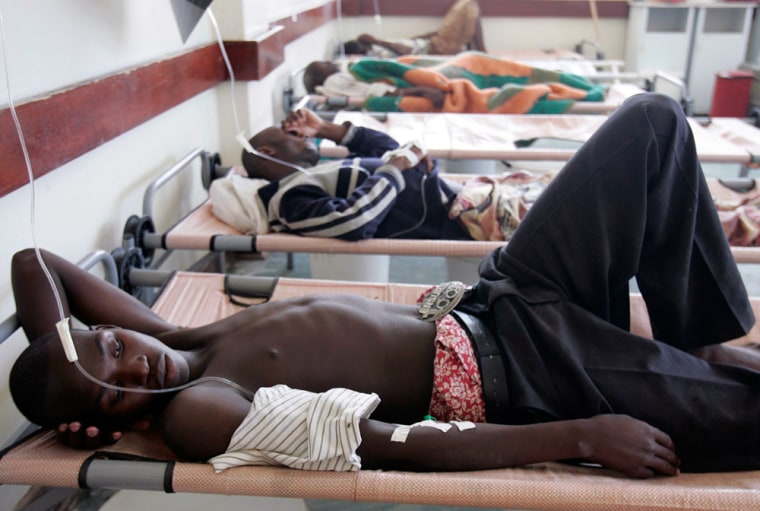Riot police charged into a group of doctors and nurses protesting Zimbabwe's deepening economic and health crisis, eyewitnesses said Wednesday as deaths rose sharply from a cholera epidemic blamed on collapsing infrastructure.
The witnesses said officers in downtown Harare ran into a march of doctors and nurses — some in uniform — who fled the police charge. A few blocks away, police stopped teachers trying to join the same protest and at least six people were taken away in police trucks, according to the witnesses, who declined to give their names for fear of official retribution.
The unions are joining a mass movement to press the government to respond to the worsening crises.
Men in the blue uniforms of paramilitary police armed with rifles were seen positioned atop several high-rise bank headquarters Wednesday.
On Monday, soldiers went on a rampage after they were unable to withdraw wages from banks, which have been short of cash as a result of Zimbabwe's economic meltdown.
Government: rogue elements
Zimbabwe's state newspaper quoted defense minister Sydney Sekeramayi as saying that rogue elements in the country were trying to incite violence against the government.
He said the coincidence of Monday's incident and the call for protests by unions and civil rights organizations "raises a lot of questions" and that any unlawful demonstrations would not be tolerated.
The United Nations said that deaths from the cholera epidemic had risen to 565, with 12,546 people infected. The government had been reporting 473 cholera deaths since August, and a total of 11,700 people infected as of Monday.
The nationwide outbreak of the waterborne disease is blamed on collapsing water treatment plants and broken sewage pipes.
Country paralyzed
Zimbabwe has been paralyzed since disputed elections in March. President Robert Mugabe and the opposition are wrangling over a power-sharing deal.
The country is suffering from the world's highest inflation and Zimbabweans face daily shortages of food and other basic goods. Many hospitals and clinics have been forced to shut their doors because of a lack of drugs and medicines.
On Wednesday, water supplies were restored to parts of Harare after authorities turned off the taps for three days after saying they had run out of purifying chemicals.
Zimbabwe's government is cooperating with aid agencies to try to stem the spread of cholera but has stopped short of declaring the epidemic a national emergency.
The European Commission said it was providing more than $12 million for drugs and clean water while the International Red Cross was also releasing more funds to deal with the epidemic.
"Cholera is a disease of destitution that used to be almost unknown in Zimbabwe," Louis Michel, the European Commissioner for Development and Humanitarian Aid said.
